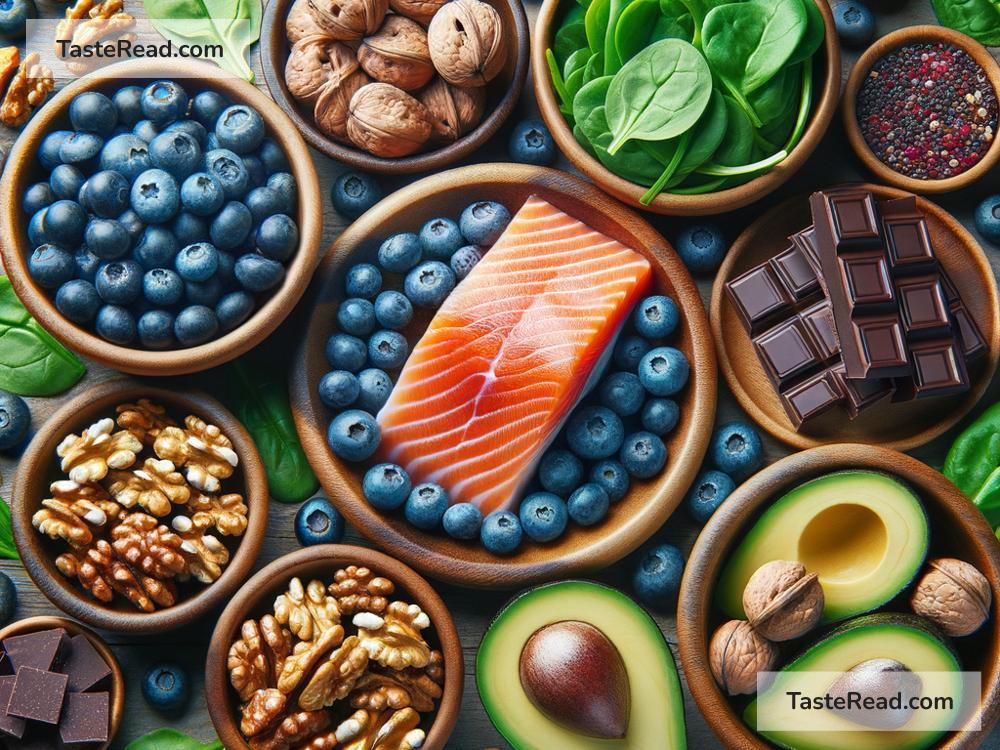Foods for Improving Self-Regulation: How What You Eat Can Help You Stay Balanced
We all have moments when it’s hard to stay calm, focused, or in control of our emotions. Whether it’s dealing with stress, managing frustration, or staying on track with our goals, self-regulation plays a big role in helping us live a balanced life. While many factors affect self-regulation, such as sleep, exercise, and mindset, did you know that the foods you eat can also make a big difference?
Self-regulation involves the ability to manage your thoughts, emotions, and behaviors. When your body and brain are properly nourished, you’re better equipped to stay calm, concentrate, and make good choices. In this blog, we’ll explore simple, nutritious foods that can boost your self-control and help you feel more balanced throughout the day.
1. Whole Grains for Long-Lasting Energy
Whole grains, like oats, brown rice, quinoa, and whole wheat bread, are great for maintaining steady energy levels. Unlike sugary snacks that can cause a quick energy spike followed by a crash, whole grains release energy slowly. This helps your brain stay focused and calm.
Why does this work? Whole grains are high in fiber, which helps control blood sugar levels. Stable blood sugar supports your brain’s ability to make decisions and manage emotions. So, instead of reaching for cookies or chips during a busy day, try oatmeal or a slice of whole-grain toast with peanut butter.
2. Nuts and Seeds for Brain Power
Nuts like almonds, walnuts, and pistachios, as well as seeds such as chia seeds and flaxseeds, are packed with nutrients that fuel your brain. They’re high in healthy fats, protein, and antioxidants, which keep your brain functioning smoothly.
Nuts and seeds also contain magnesium, a mineral that helps reduce stress and improve mood. Walnuts, in particular, are high in omega-3 fatty acids, which have been shown to support brain health and emotional regulation. Keep a small bag of mixed nuts handy for a quick snack that improves focus and keeps stress in check.
3. Fruits for a Mood Boost
Fresh fruits are nature’s candy, loaded with vitamins, minerals, and antioxidants. They help protect your brain from damage caused by stress and can improve your mood. Berries like blueberries, strawberries, and raspberries are especially good for self-regulation because they contain compounds that support brain health.
Bananas are another star food, as they’re rich in vitamin B6, which helps your body produce serotonin—a chemical that makes you feel happy and calm. Next time you’re craving something sweet, reach for a piece of fruit instead of sugary treats to give your brain a healthy boost.
4. Leafy Greens for Stress Control
Leafy green vegetables like spinach, kale, and broccoli are excellent for reducing stress and improving focus. These veggies contain magnesium and folate, which are known to calm the nervous system and improve mood.
Spinach, for example, is rich in folate, a nutrient that supports the production of dopamine—a feel-good chemical in the brain. Adding leafy greens to your meals can help you stay centered and maintain emotional balance, even on challenging days. Try adding spinach to your eggs, blending kale into your smoothies, or enjoying a salad topped with broccoli.
5. Protein for Strength and Stamina
Protein plays an important role in self-regulation because it keeps your energy steady and helps you focus. Foods like eggs, chicken, beans, tofu, and yogurt are good sources of protein that prevent energy dips and keep your brain sharp.
Protein-rich foods contain amino acids, which help your body create neurotransmitters—chemicals that regulate your mood and emotions. For a quick protein-packed snack, try Greek yogurt with berries or a boiled egg and some carrot sticks.
6. Healthy Fats for a Calm Mind
Healthy fats, such as those in avocados, olive oil, and fatty fish like salmon and sardines, are important for brain health. They support your brain’s ability to process emotions, make decisions, and manage stress.
Omega-3 fatty acids, found in fatty fish and flaxseeds, are especially good for improving self-regulation. These fats help reduce inflammation in the brain, making it easier to concentrate and stay emotionally balanced. Aim to include these healthy fats in your meals to keep your mind calm and clear.
7. Dark Chocolate for Relaxation
It may come as a pleasant surprise, but dark chocolate can actually help with self-regulation when eaten in moderation. Dark chocolate is rich in antioxidants and magnesium, both of which help lower stress and improve brain function.
However, the key is to choose dark chocolate with at least 70% cocoa and eat small amounts. A square or two can give you a mood boost and support your ability to stay focused without overloading on sugar.
8. Water for Mental Clarity
Finally, don’t overlook the power of water! Staying hydrated is essential for your brain to function properly. Dehydration can make you feel tired, cranky, and unfocused, making self-regulation more difficult.
Make sure to drink water throughout the day to keep your energy stable and your mind clear. If plain water feels boring, try adding a slice of lemon, cucumber, or fresh mint for flavor.
Final Thoughts
The foods you eat have a big impact on your ability to manage your emotions, stay focused, and make good decisions. By choosing nutritious, balanced meals and snacks, you’re giving your brain and body the fuel they need to regulate themselves. Remember, improving self-regulation is a process, and every healthy choice adds up over time.
Start small—swap chips for nuts, drink an extra glass of water, or add greens to your lunch. Making these changes can lead to big benefits in how you feel and manage life’s challenges. You’ll be amazed at how much power good food has to help you cultivate calm, focus, and control in your daily life.


